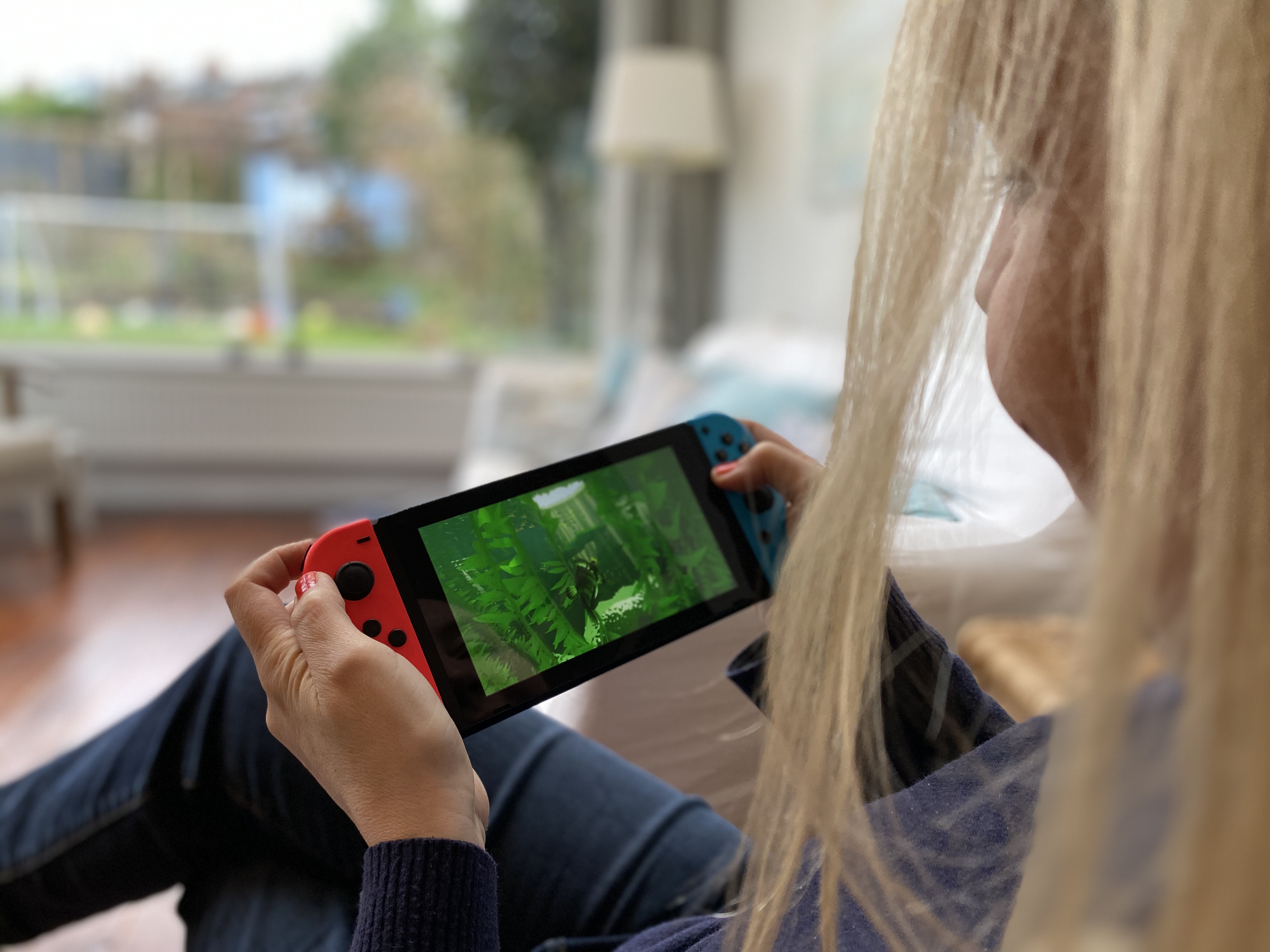Every Mind Matters – how video games can be used to support positive mental health

Ukie is supporting the Better Health Every Mind Matters campaign, to help protect and improve the nation’s mental health and wellbeing. We’re all dealing with a lot of uncertainty right now. But there are things we can all do to look after our mental health and wellbeing during this time.
There are lots of practical tips and advice on the Every Mind Matters website, including a free, personalised Mind Plan to help you feel more in control. We’ll also be taking a look at how games have played a role in helping people’s mental health during the COVID-19 pandemic.
According to IPSOS Mori research from September 2020, 50% of players in the UK reported that games made them happier during the first lockdown with an additional 39% reporting that they felt less lonely and less anxious due to play. And with, the Oxford Internet Institute reporting in November 2020 that time playing games is positively associated with well-being, games could be part of the mix of activities supporting your mental health.
But what role can different types of games play in supporting your mental health? And how can you set up play to make sure that it works for you and your family? Let’s take a look at some tips.
Find your flow on your own
One of the main reasons why unwinding with a video game can be so effective is that they can put you into a relaxing state of flow.

By providing you a task at hand and asking you to solve it – whether through nimble use of a controller or considered clicks or swipes – games can helpfully sweep you up into a different world and provide a welcome relief from anxiety in particular.
Importantly, there are specific genres of games that work well if you’re playing alone. Puzzle games offer a welcome mental challenge, often testing your mental dexterity, reasoning or sense of space. Simulation games immerse you into a world familiar to your own, allowing you to experience everything from the thrill of flight to managing a theme park or hospital. Strategy games help you take the long view, using military skill, your powers of negotiation or management of economies to get ahead. There are even games that let you make your own levels or games to unlock your creativity too.
So if you do need to find something to take your mind off things or want to create a calming project to commit to, consider a game such as these. They may give you valuable space from the current situation we are in.
Get fit with games
Exercise is great for your mental health and there are now a range of video games that are designed to get you moving.

You could consider livening up your daily walk or run by downloading location-based games on your phone. Whether they’re tasking you with catching virtual monsters or running away from them, they’re a good way to vary your daily outing (though, please, do keep to one trip out a day).
Equally, there are a range of games that can be played indoors too. There are games that’ll get you dancing with your controllers, have you swinging light sabers to a beat in VR or turning a full body workout into an adventure game to keep you fit.
So it’s worth researching to see whether it’s possible to add games to an indoor workout as a way to keep your mind and body as fit as one another.
Catch up with your friends and family in a game
Online games offer another valuable way to give your mental health a boost; they can be a great way to connect with your friends and family.
Multiplayer games played online can offer a great way to interact with people outside your home without ever leaving it. Due to the huge range of online games and board games out there, it’s possible to find a fantastic game that everyone in your friendship group or family can play together.

But the thing that’s really good about games played online is that they encourage conversation. Whether you’re competing or co-operating, setting up a WhatsApp group, creating a Discord server (which lets you have big group voice chats) or getting on a video call is often key to successfully playing together.
And while you might start out chatting in game tactics or playing mind games with your rivals, you’ll quickly find that in the times between games – say, when a new round is loading or someone has popped off to make a cup of tea – that you have time to talk about life in general.
So consider heading online with friends or family in a game as a way of generating invigorating conversation.
Play well
Finally, the best way to benefit from the positive mental health effects of games is to make sure that you – or people in your family or household - play in a safe and responsible way.
We recommend that you do the following to make the most of it:
- Set limits on playtime by making sensible house rules and, if necessary, using the settings on most consoles and devices to put caps on play.
- Take regular breaks, roughly 5-10 minutes every hour, to make sure that players get a breather between rounds.
- Help younger players online by checking they’re only interacting with people you’re comfortable talking to – such as their list of friends – and by giving them tips on staying safe (such as setting up private games only).
- Enjoy lots of hobbies outside of games too. While they’re great fun to play, they’re best enjoyed alongside a wide range of hobbies too.
- Get advice if you need it. There are a range of tips on keeping play positive at www.askaboutgames.com including advice on setting up controls to limit screen time, spend and access to age-inappropriate content.
Games can be a great way to support the mental health of you, your friends and your family. But it’s important to make sure that play is part of life, not all of it, to make sure you benefit from it.
Further support and advice to look after your mental health
Better Health - Every Mind Matters will get you started with a free NHS-approved Mind Plan, available on the website. By answering five quick questions you’ll get a personalised action plan with practical tips to help you deal with stress and anxiety, boost your mood, sleep better and feel more in control.
You can also visit the Every Mind Matters COVID-19 content hub, which includes tips and support on how to deal with change, coping with money worries and job uncertainty and how to look after your and your family’s mental wellbeing while staying at home.





